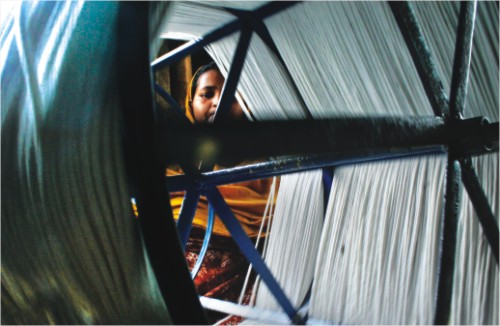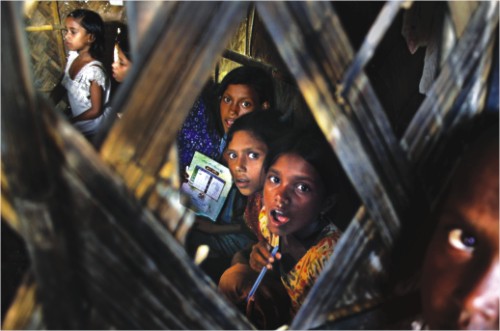
Inside
|
The triple bottom line Amer Ahmed makes the case for the social enterprise movement The failure of communism in the twilight of the 20th century seemed to vindicate the champions of the free market -- be they Chicago libertarians or Washington Consensus neoclassicists. However, even as command economies fell, the world came to witness new crises in the fledgling free markets. From the disastrous privatisation of Bolivia's natural resources to the violent upheavals in the former Soviet Union, capitalism and the free market failed time and time again to provide sufficient conditions for sustainable growth. The promised virtuous cycle of economic and social development often did not come to pass. Moving past blind faith, economists have now come to realise that liberalisation, deregulation and privatisation by themselves cannot guarantee that a market will truly be functioning, free, and able to provide the social services necessary for sustainable development. A key ingredient for functioning markets to be able to deliver an environment conducive to development is a strong institutional framework, which many developing countries like Bangladesh lack. Into this abyss of institutional failure enters a new player -- distinct from both the state and the traditional profit-seeking businessman -- that provides the social services that governments negative externalities associated with the protracted presence and growth of so many NGOs for so long. Among many criticisms is the idea that the NGO sector has been permitted to grow beyond being a complement to the public sector to become a competitor. This compe- tition has perhaps been the most currently may not be. This player is the social entrepreneur.
When governments fail to provide key public services, the business community -- guided by the invisible hand of the market -- often steps in to fill this void. However, as recognised by economic theory, the traditional entrepreneur is primarily motivated by private profit. Indeed, executive officers of limited companies are responsible, by law, to maximise the returns to their shareholders. That's their bottom line. What may differentiate the social entrepreneur from the traditional entrepreneur is the idea of a triple bottom line. While the traditional entrepreneur has only the objective of private profit to pursue, the social entrepreneur's mandate is broader and includes the pursuit of private profit, social, and environmental objectives. Instead being beholden to just the interests of the shareholder, the social entrepreneur's responsibility is towards stakeholders in the firm's activities. In early 2007, the UN's International Council for Local Environmental Initiatives recognised the triple bottom line as the primary standard for full cost accounting in the public sector. While Bangladesh can boast many virtues, a strong public sector delivering quality social Indeed, NGOs have played an important role in the provision of services that our public sector has consistently failed to provide enough of, especially in areas like women's rights advocacy, education, healthcare, and sanitation. It is also an unfortunate fact that the consistent inability of our country to develop the public sector has created a continuing need for NGOs since the early years of our nation's birth, despite the ex-post evidence that there are some apparent in the interactions of the better-funded NGOs and the less-attractive government sector in the labour market, where the latter has often lost out on our best and brightest to the former. However, on balance, NGOs have done more good than harm to our country, increasingly in their roles as social entrepreneurs. Even though NGOs like Brac and other community groups like the Grameen Bank are well recognised as massive social entrepreneurs, each with millions of stakeholders, there is a multitude of smaller initiatives throughout the country that are much lower profile and with smaller budgets, but that are doing equally important work. For example, since the 1990s, the Dhaka based organisation, Phulki, has been active in the protection of the rights of female migrant workers, predominantly those employed by the garments industry. Among its many accomplishments has been the development of community-based daycares for the children of working women. Parallel to its advocacy and social work, Phulki provides paid services such as monitoring services for the Fair Labour Association, and consulting for management of factory-based childcare services. It is safe to say that Phulki, as a lower profile organisation, has done well, certainly achieving the dual objectives of profit and social development that define a social enterprise. However, there are countless other small social enterprises in Bangladesh that have not been able to grow as much as Brac, Grameen, or even Phulki. One commonly occurring constraint to their growth has been a lack of access to commercial sources of finance. Recognising social entrepreneurs as valuable partners in sustainable development, and aware of their financial needs, private organisations are, in turn, responding. One such organisation, Drishtipat -- a non-profit organisation of primarily expatriate Bangladeshis -- sponsors an annual program called the Drishtipat Challenge (http:// drishtipat.org/ dpchallenge) that aims to fund or supplement the funding of budding social entrepreneurs. The Challenge, soon to enter its second year, invites the general public to submit innovative proposals for social enterprises. After an initial screening, the successful proposals receive seed financing loans of up to $5,000. While it may seem a modest amount, small injections of funds like this are all that are needed to kick-start the next great idea.
Social enterprises are by no means a silver bullet for the myriad developmental challenges that a country may face. However, in Bangladesh, where the institutional framework is not robust enough to provide the necessary social services needed for balanced socio-economic growth, the power of the free market can be an important ally in the struggle for sustainable development, providing positive benefits to the rest of society through advocacy, training, education, empowerment, and conservation among other things. Our country cannot afford to turn down any help it can get. Amer Ahmed is a PhD candidate in Applied Economics at Purdue University and is a member of the Drishtipat Writers' Collective. |

 services and a development-friendly institutional environment are not among them. In response, individual citizens and organisations -- our social entrepreneurs -- have stepped forward to create opportunities that promote sustainable development. In the Bangladeshi context, these social entrepreneurs have often taken the form of NGOs.
services and a development-friendly institutional environment are not among them. In response, individual citizens and organisations -- our social entrepreneurs -- have stepped forward to create opportunities that promote sustainable development. In the Bangladeshi context, these social entrepreneurs have often taken the form of NGOs.